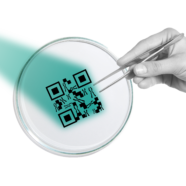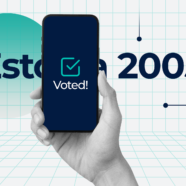- #all
- #banking
- #biometrics
- #business
- #culture
- #digital identity
- #elections
- #ethics
- #facial recognition
- #fingerprint recognition
- #government
- #iris recognition
- #NIST
- #onboarding
- #online elections
- #technology
- #UX
- #voice recognition

Entering the era of DNA IDs: Will DNA become an integral part of our personal identity documents?
Since 1986, DNA has revolutionised criminal investigations, arresting killers and clearing the innocent. However, even though DNA fingerprints has helped to identify criminals, they do not contain any real personal information, such as race or height. For this reason, experts consider using them as DNA IDs in government databases for registration, verification, and access control.

From paper to digital: Modernising criminal records with biometrics
Guinea is now dedicated to modernising and digitising its police records. This involves the integration of biometrics into the criminal identification process.

Behind the scenes: Safeguarding “one person, one vote” for Guinea’s millions of registered voters
Attempts to change political regimes in African countries have often failed due to disputed elections. In Guinea, biometric technology has helped to create a reliable voters list – an essential prerequisite for legitimate elections.

Biometrics to the rescue: helping democracies to build elections that can be trusted
Data shows that the number of democracies in the world is shrinking. Many countries are struggling on a precarious path between democracy and autocracy, while in long-established Western democracies fears over the denial of election results are becoming more and more frequent.

Six must-haves for a trusted election via smartphones
We go online to send money, manage our health, take classes and buy groceries – so why are we still unable to vote via our smartphones? Governments often cite risks of possible hacks and security breaches, which are said to have greater potential to affect online systems than traditional processes. But is that really the […]

Biometrics remains essential for sustaining democracy and digitisation of the African continent
About Abdul-Gamal Toure Gamal spent six years working as a database administrator for the electoral register of Togo and Mali, one year as a manager of electoral agents in the field, and four years as an independent consultant. He’s carried out various missions within international organisations such as the OIF, the EU, and CENI-Guinea, all […]

Data ethicist Juraj Podroužek: “I think it’s correct to have some red lines that set out areas where AI should not venture.”
Technologies are not value-neutral; they are imbued with the values of their creators. How can the ethical values that society deem important be reflected in technologies?

“We enabled a whole digital ecosystem in Sweden – from eGovernment to a cashless society,” claims Jonas Brännvall from BankID.
Digital identification has given Swedes services that are fast, convenient and trusted long time before the advent of mainstream biometrics. From security to usability, everything works seamlessly for the end user, because that's what infuses the whole ecosystem with trust. What role will biometrics take as the service continues to evolve, and as it expands beyond Sweden, 20 years after its inception?

5 peculiar cases of identity theft and how they could have been prevented
The digital age has opened up new, easily accessible avenues for ID fraud.

Biometric central registry opens up online services to everyone
How Panama went for a brand-new, faster biometric identity register.








